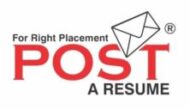
- Boohoo reported blockbuster sales growth for the first quarter of the year on Wednesday.
- Sales soared 45% during the quarter proving that the company was able to not only survive but thrive during the coronavirus pandemic.
- The company also announced its acquisition of the online businesses of British high-street brands Oasis and Warehouse for £5.25 million ($6.6 million).
British fast-fashion Boohoo is on a path to dominating the online fashion scene.
The company, which also owns Pretty Little Thing, Karen Millen, and Nasty Gal, reported first-quarter earnings early Wednesday morning.
Sales soared 45% during the quarter, far exceeding analysts’ expectations, and proving that the company was able to not only survive but thrive during the coronavirus pandemic. Advertisement
“During unprecedented and challenging times, the Group has delivered a very strong trading and operational performance,” John Lyttle, group CEO, said in a statement announcing the results.
He continued: “I am proud of how our colleagues and business partners from around the world have responded to ensure that we can safely bring to our customers the latest fashions, great value, fantastic prices and best in class service. Whilst there is a period of uncertainty within the markets in which we operate, the Group is well-positioned to continue making progress towards leading the fashion e-commerce market globally.”
The company also announced its acquisition of the online businesses of British high-street brands Oasis and Warehouse for £5.25 million ($6.6 million). These two high-street brands went into administration earlier this year and were sold to restructuring firm Hilco Capital Limited.
In a note to clients on Wednesday, Jefferies analysts Andrew Wade and Daniela Almeida described the acquisition as “low risk” for Boohoo and “evidence of the long-term potential in boohoo’s multi-brand platform.”
“Boohoo has reported an outstanding start to the year,” these Jefferies analysts wrote. “The result clearly demonstrates the virtues of boohoo’s nimble model – leveraging its flexible supply chain, and rapidly evolving both marketing content and product ranges to drive superior growth.”
